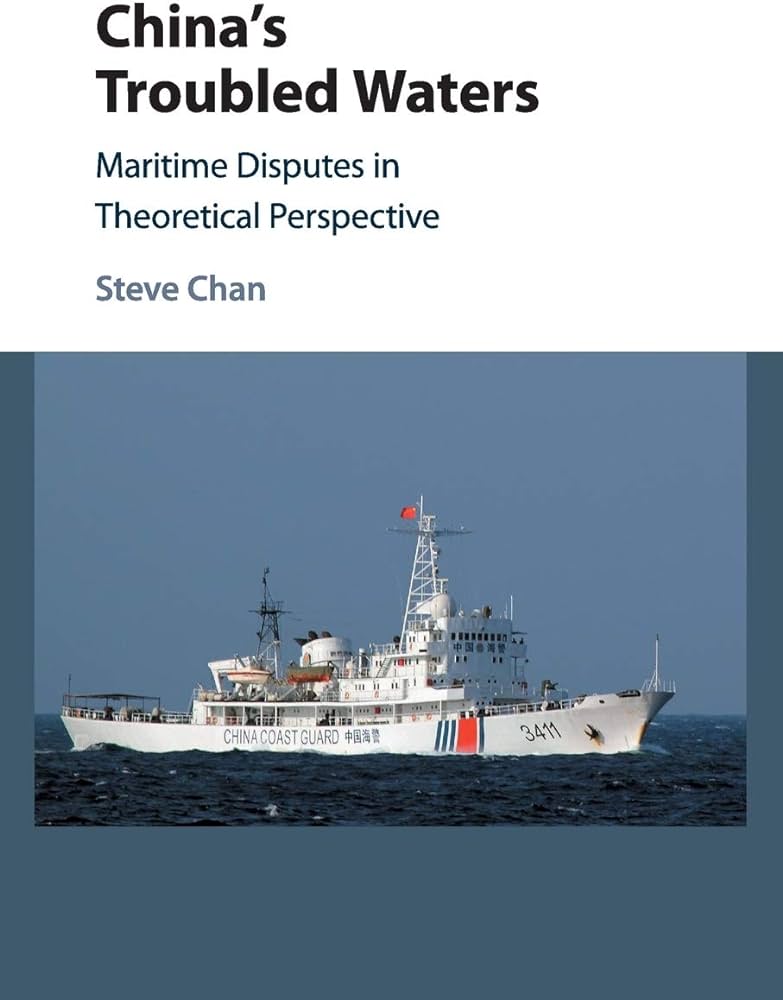
Steve Chan affirmed at the outset that his book will not repeat the conventional/popular views out there. After all, having gone through 35 years of ascendance, every decent academic with an aim to pursuing a tenured position, has had to try every conceivable manner to cut and slice China into many small bits. The goal? To get oneself published and noticed. Thus, one wonders if anything new can be said about it; especially on an issue that has been often covered by the presslike the maritime disputes of China.
Apparently, Steve Chan was right and he has proven it in this book through the theory of bargaining. According to him, states may do their best to avoid wars and conflicts. Neither Britain nor Argentina wanted to be enmeshed in a war over the Falkland Islands, which were neither strategic nor important to both sides. Indeed, it was described by an Argentinian writer Jorge Borges as “two bald men fighting over a comb,” a phrase repeated by Steve Chan in the book. Yet, the two fought, and it was too late for the United States to stop them.
According to Steve Chan, using the theory of bargaining will illuminate China’s position in the South China Sea. First of all, in any situation of bargaining, or game theory, one member state will try to anticipate what the other is doing in order to deter,or pre-empt it; ideally to get the other side to change its behavioral trajectory.
Secondly, the whole process of trying to anticipate another state’s behavior, is the essence of strategy. But within the context of this simple strategy lies a whole spectrum of emotions, which remain rational, but is nonetheless still propelled by factors like fear, honor, anxiety, insecurity and pride.
All these emotions lie dormant in China due to its century long investment in the value and belief of sovereignty, the legitimacy of its cause, the popularity gains from one-upmanship viz another country/great power and its previous humiliation by great powers.
Thus, if one were to see China and the South China Sea from the twins of cold-hearted calculations and hot-headedness, one begins to understand why China behaves the way that it does on the 9 dashed line. In fact, no one knows if China is insisting on defending its territories within the 9 dashed line or the exclusive economic zones as well. If the latter is the case, then China’s exclusive economic zones would overlap with that of other claimants, potentially, even Indonesia’s EEZ that surrounds the Natuna Islands.
Granted that there are two sides to China’s behavior, one driven by increasing military capacity, with another propelled by unclear ambitions. Steve Chan argues that the situation in the South China Sea as it applies to Sino-US relationship is still fluid. It will not necessarily lead to war and conflict or to joint development.
Anything that can happen, will happen; no doubt. But be it war or peace, it is subject to the two countries trying to work it out between themselves or together with other Southeast Asian claimants.
The one nagging problem of this book, despite its relatively new launch in 2014, boils down to this: the book could not catch up with the various events in the South China Sea in recent years. Almost every other day, there are some kind of incidents at sea, including the East China Sea.
In October 2016, for example, Chinese fishing vessels tried to ram themselves into Korean Coast Guards in the East China Sea. In some cases, Korean Coast Guards reacted to these incidents, by threatening violence. One Korean Coast Guard accidentally lobbed a grenade into a Chinese boat. More recently, the Korean Coast Guards fired their machine guns into the air to ward off the Chinese fishing vessels.
China has also resorted to building air strips in Fiery Cross in the South China Sea. Anti-aircraft airplanes have also been installed. All of these new features are added to the reclaimed land in the sea. Having built more than 3500 hectares of reclaimed land in the South China Sea, all within a short span of 1.5 years, there is no telling when Beijing will stop.
The more recent events show that China still cannot be held accountable for its behavior. Based on bargaining theory, Steve Chan has produced a much more positive and optimistic picture. But whether the developments in South China Sea can follow the narrative and script of Steve Chan, it remains to be seen.
